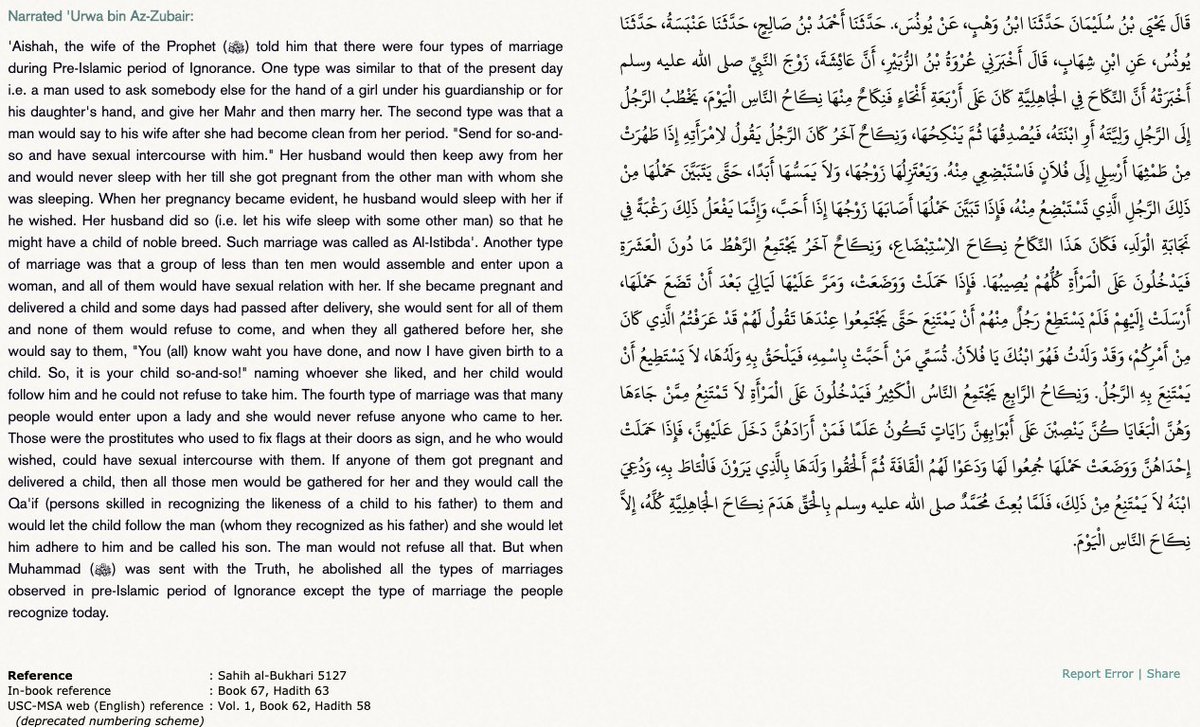#HappyMothersDay.
Did you know that stories of Fatimah al-Zahra’ (daughter of prophet Muhammad) portray her as regnal heir and mother goddess?
Check it out!
Did you know that stories of Fatimah al-Zahra’ (daughter of prophet Muhammad) portray her as regnal heir and mother goddess?
Check it out!

Fatimah was most sought-after bride by rapacious Qurashi noblemen rushing to succeed Muhammad as ‘king of Arabia’. He refused to give his daughter’s hand in marriage to the shrewd Abu Bakr or furious ‘Umar, but consented to the request of his young cousin and confidant ‘Ali. 

Rejected suitors were clearly offended & came into conflict with Fatimah after Muhammad’s passing when they disputed her birthright, & when ‘Umar is said to have mortally wounded her, & when Abu Bakr offered apologies during the intervening days before her untimely death 

Both Fatimah and husband ‘Ali form the political and religious foundation of the Islamic holy family (ahl al-bayt) and Shii Imamate. Fatimah was the mother to the slain martyr al-Husayn, in part modeled after Mary the mother of the slain Messiah Jesus. 

Fatimah was, therefore, in the spirit of her lamenting mourning and predecessors, seen as “mistress of the House of Sorrows, both in this world and in the world to come” (El Cheikh) 

According to an abundance of reports, Muhammad’s unique benediction and beatitude over their marriage clearly made them special, in the manner expected were they to accede to the throne of Arabia’s next queen and king. 

Reports claim ‘Ali bestowed as his dowry to Fatimah, a metal shield bestowed upon him from Muhammad. This demonstrates, among other things, Fatimah’s inheritance of political power wielded by Arabian female nobility, recalling the lance & shield of Allat/Athena & counterparts. 



Recent scholarship explores Fatimah’s existential challenge, tragic fate and lasting curse according to the topoi and literary instruments of the ancient Greek tragedy, Antigone. 

But there is more. Various symbolism used to characterize Fatimah demonstrates her regnal deification as queen of heaven. You can read the details in my upcoming book on female power & male prophecy in late antique Arabia! 

See further:
Ibn Sa‘d, Kitab al-tabaqat al-kabir, Cairo: Maktabat al-Khanji, 2001, VOL 10.
Ali Shariati, Fatemeh fatemeh ast, Tehran: Nashr-i-Ayat, 1978.
Ouardi, Les Califes maudits: Volume 1: La déchirure, Paris: Albin Michel, 2019.
Ibn Sa‘d, Kitab al-tabaqat al-kabir, Cairo: Maktabat al-Khanji, 2001, VOL 10.
Ali Shariati, Fatemeh fatemeh ast, Tehran: Nashr-i-Ayat, 1978.
Ouardi, Les Califes maudits: Volume 1: La déchirure, Paris: Albin Michel, 2019.
• • •
Missing some Tweet in this thread? You can try to
force a refresh



















